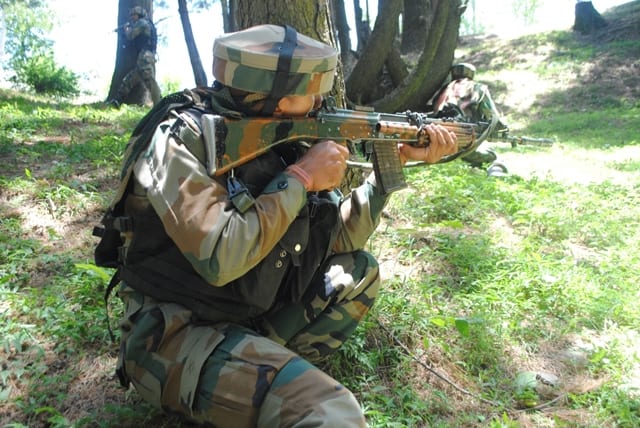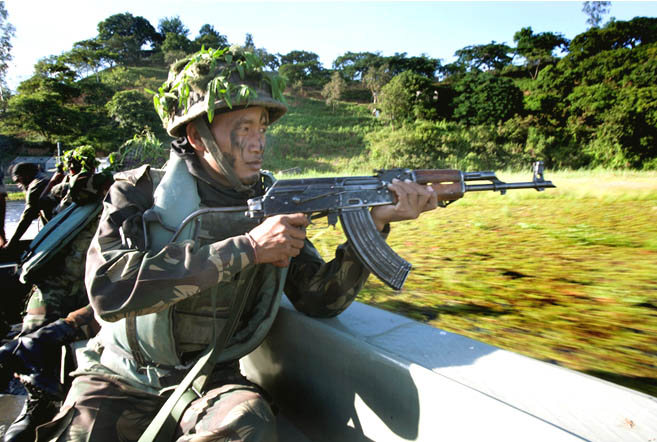A day after the Indian armed forces ambushed and killed 17 coal miners in Nagaland’s Mon district on December 4 in what was stated to be a case of mistaken identity during a counter-insurgency operation, a friend sent me this link to a song by a Manipuri band called Imphal Talkies and the Howlers. If you listen to the song, the words are:
“AFSPA, why don’t you go fuck yourself?
Don’t you have brothers?
Don’t you have commanders?
Don’t you have captains?
Why don’t you go fuck them all?
Why don’t you go Kill them all?
Tidim Road is still bloody
And the air smells of gunpowder
And from my windows I can see only widows
And mama don’t want me to sing such songs.
So please please leave
AFSPA, why don’t you go fuck yourself?”
The song dates back to 2016 but the sentiment expressed in it is still strongly alive and widespread through the north-eastern region of India: Manipur, Nagaland, Arunachal Pradesh and parts of Assam. AFSPA or the Armed Forces (Special Powers) Act is hated almost universally in the region. But what exactly is AFSPA?
The origins of AFSPA (like hundreds of Indian laws) date back to the days of the British Raj. In 1942, in an attempt to quell the spread of the Quit India movement, the British colonial government that ruled India promulgated the Armed Forces Special Powers Ordinance. Later, in 1948, to stem the rioting and violence that erupted because of the Partition of India, four ordinances, modeled on the one from 1942, were promulgated to cover four regions, Assam, West Bengal, East Bengal, and the United Provinces. These areas were declared as disturbed and the armed forces were empowered specially to operate there.
After the mid-1950s when the Naga rebellion gathered momentum and a parallel Naga nation was declared, another law was passed. The Naga rebellion (or, as it is officially called, insurgency) was quelled but the act remains in force, validated by regular extensions. This is the AFSPA that (after several amendments) still exists in the area.
To put it in perspective, region-specific special powers were also granted to armed forces in Punjab and Chandigarh in 1983 to combat the rising separatist movement there but the act was repealed after 14 years in 1997. In 1990, a similar act was promulgated in the Jammu and Kashmir region after the spate of unrest and terrorism began growing in the region. AFSPA is still in force in J&K. As it is in the North-East.
In the North-East, almost universally, AFSPA is considered an excessively harsh and severe law that is prone to abuse by security and armed forces. It gives the armed forces the authority to use force or even open fire after warning a person found to be in contravention of the law. In the case of the unarmed Naga miners who were gunned down, interviews with survivors reveal otherwise. The Indian Express published interviews where survivors said they were not signaled to stop nor warned before the forces opened fire.
AFSPA in the North-East has faced criticism for a while. The latest incident brings the issue back into the spotlight. AFSPA has militarized parts of India close to the borders–both in the east or in the west. This has already had adverse effects on civil life, living conditions and the economy in many of these areas. In the North-East where insurgency has been on a steady decline, many believe it is non-aggressive interventions that hold the key to normalizing the tension.
India’s north-east has its own share of problems. Many north-easterners face discrimination in other parts of India; industries have not been investing in the region; and social and cultural differences are often not acknowledged or appreciated by the rest of India. The public mood and opinion the region have suffered another setback with the recent horrific killings, which even the local police authorities have described as being “murders”. It is time now to review the provisions of AFSPA, at least in the North-East
How dangerous is Omicron?
Ever since a new variant of COVID-19 surfaced in South Africa, giving yet another never-ending twist to the ongoing pandemic, questions have arisen about how bad this new mutated version, named Omicron, could be. To be sure, there are no clear answers. At least, not yet. But there are some indicators of what the variant can do.
First, Omicron may be more easily spreadable. If the surge of cases in South Africa is indicative of anything it shows that Omicron could be more easily spread. As on December 9, in South Africa, records showed that the virus increased 255% in just a week. Although deep research into a very recent variant such as Omicron has not been done yet, epidemiologists believe that it can infect people with low immunity levels more than earlier variants of COVID-19 do.
Second, it has already been noticed that vaccinated people or those who have already been infected before by COVID can contract the variant more easily than the earlier mutations of the virus.
Third, and there is a small nugget of hope here, is that the conditions that accompany infection by the virus may not be that severe. Although it may be too early to pass judgment about it, many patients infected by Omicron have shown milder symptoms than what happened with earlier variants.
While research continues into COVID and its several variants, the bottomline is that there is no substitute for abundant precautions against the spread of the virus: masks, social distancing, and vaccination. These may not offer 100% protection but till the elusive COVID-free world returns, these (often irritating) measures have to be prudently adopted.


